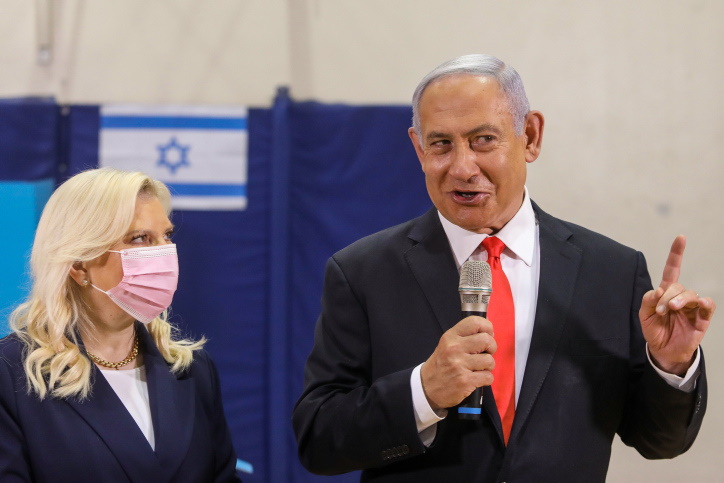Netanyahu and other politicos arrived early to vote at the polls.
By David Isaac, World Israel News
Prime Minister Benjamin Netanyahu and his wife Sara voted in Jerusalem on Tuesday. On his way out of the hall, Netanyahu said, “hoping these are the last elections,” as they are the fourth in less than two years.
Other important personages also headed to the polls early, including President Reuven Rivlin.
“With all the difficulties of the current situation, elections to the Knesset are the pinnacle of our democracy. Four elections in two years erode public trust in the democratic process, but only you can influence. There is no other way,” he said.
Although largely a figurehead role, the president plays an important part in Israeli elections, choosing which candidate to entrust with forming a government.
Immediately after casting his ballot, the president called on all Israeli citizens to go and vote, saying, “This time, too, I ask you to go and vote. I am voting today for the last time as president, but above all, I do so as a concerned citizen. Very concerned.”
The president thanked the Central Elections Committee, headed by Judge Fogelman, saying, “In these elections, too, the committee ensures the right of every Israeli to vote, and that the process will be carried out according to the regulations across the country. They do so in the face of many challenges, particularly that of adapting the elections to the coronavirus pandemic, to at risk populations and for those in isolation.”
Screens were placed between observers at the polls and voters. Masks were required.
Other politicians were seen voting near their homes, including Yemina’s Naftali Bennett with his wife Galit in the city of Raanana and Gideon Saar of the New Hope party, who was in Petach Tikvah with his wife and two children.
“New Hope is being tested for the first time by the citizens of Israel with a clear path and great hope for the future. This is an exciting and very important day for the citizens of Israel because today we have the opportunity to come out of a deadlock of two years with four election campaigns and make a change,” Saar said.


